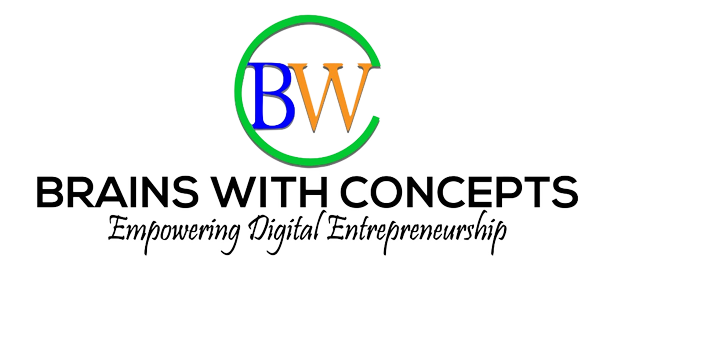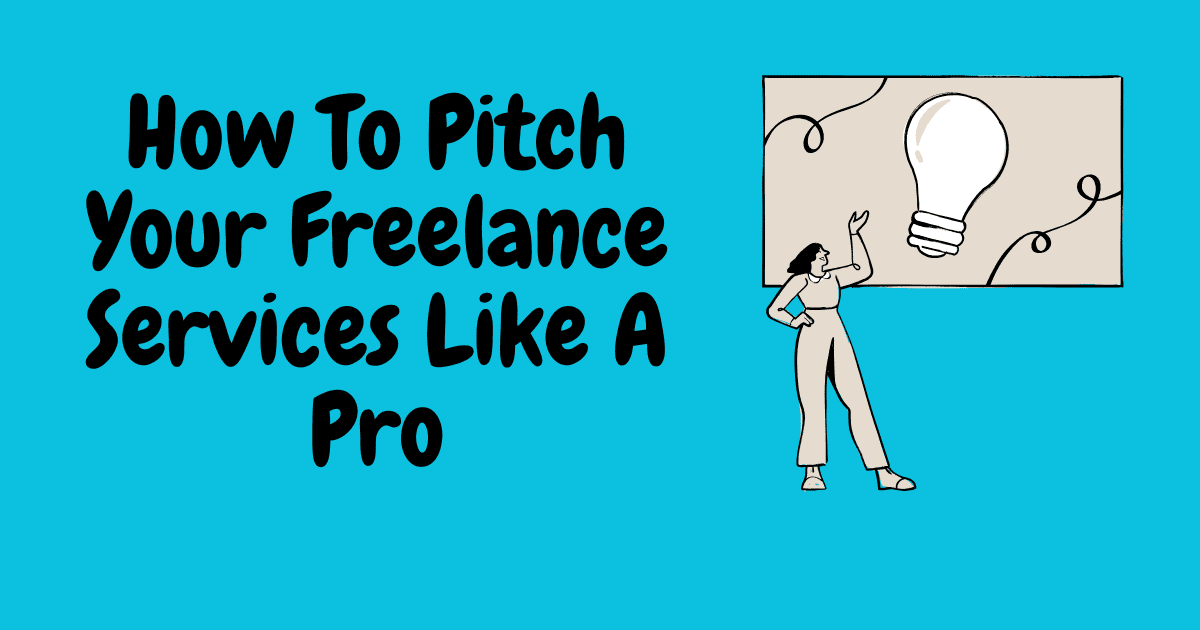Picture this: You’re a talented writer in Nairobi, Mombasa, or anywhere in Kenya. Your portfolio showcases exceptional work, your skills are sharp, and you’re ready to take on the world. But here’s the challenge – how do you effectively convey your value in a competitive market, both locally and globally?
If you’re like many gifted Kenyan writers, you might find yourself struggling to convert your undeniable talent into consistent, well-paying gigs. The culprit? Weak proposals that fail to capture attention and communicate value.
The truth is, great writing skills alone aren’t enough in today’s competitive freelance landscape. What separates successful freelancers from those still struggling to break through is the ability to craft irresistible proposals that speak directly to client needs and showcase genuine value.
This comprehensive guide will transform how you approach client pitches, offering proven strategies to impress both Kenyan businesses and international clients. You’ll discover the key elements that make proposals impossible to ignore, learn how to tailor your approach for different markets, master effective communication techniques, and develop confidence in rate negotiation.
For Kenyan freelancers, strong proposals represent more than just better response rates – they’re your bridge between local talent and global demand, creating pathways to sustainable, profitable freelance careers that showcase the exceptional quality of Kenyan writers on the world stage.
The Foundation of a Winning Proposal – Universal Principles
It’s About Them, Not You
The biggest mistake most freelancers make is treating their proposal like a resume. They list achievements, qualifications, and experience without connecting these to the client’s specific needs. Successful proposals flip this approach entirely.
Instead of starting with “I am an experienced writer with five years in content marketing,” begin with “Your recent blog posts show strong industry knowledge, but they’re missing the SEO optimization needed to reach your target audience of small business owners in Nairobi.”
This shift demonstrates that you’ve taken time to understand their challenges and positions you as a solution provider, not just another service vendor.
Research is Gold
Before writing a single word of your proposal, invest time in thorough research. For any client – whether a tech startup in Silicon Valley or a logistics company in Mombasa – understanding their business landscape is crucial.
Examine their website, recent content, social media presence, and industry position. Look for gaps in their current content strategy, recent challenges they’ve discussed publicly, or opportunities they might be missing.
For Kenyan clients specifically, dive deeper into their local market positioning. How do they communicate with Kenyan customers? What local trends or challenges might affect their business? Are they leveraging local payment systems like M-Pesa in their content strategy?
Analyze job descriptions meticulously. Every keyword, requirement, and specification provides insight into their priorities and pain points. When clients see that you’ve done your homework, trust builds immediately.
Clarity and Conciseness Matter
Busy clients don’t have time to decode lengthy, convoluted proposals. Your writing should be clear, direct, and easy to scan. Use short paragraphs, bullet points where appropriate, and avoid industry jargon unless the client’s field specifically requires it.
Remember, your proposal itself is a writing sample. Flawless grammar, spelling, and formatting aren’t just professional courtesies – they’re demonstrations of the quality clients can expect from your work.
Always Include a Clear Call to Action
Every proposal should end with a specific next step. Whether it’s “I’m available for a brief call this week to discuss your content goals” or “Shall we schedule a meeting to review your current content strategy?” – give clients a clear path forward.
Tailoring Your Pitch for the Kenyan Market
Understanding Local Nuances
Kenyan businesses operate within unique cultural and economic contexts that international clients might not share. Your proposals should reflect this understanding while maintaining professionalism.
Use examples and language that resonate with Kenyan experiences. If you’re pitching to a local restaurant chain, mention understanding of local food preferences, seasonal eating habits, or how to write content that connects with diverse Kenyan communities.
For e-commerce clients, demonstrate awareness of local shopping behaviors, mobile payment preferences, or logistics challenges specific to Kenya. This local insight immediately positions you above competitors who might offer generic, one-size-fits-all solutions.
Building Trust and Rapport
Kenyan business culture often values personal connections and relationship building. While maintaining professionalism in your written proposals, aim for a tone that’s friendly, respectful, and approachable.
Where genuinely applicable, mention shared values, community involvement, or local connections. However, authenticity is key – clients can spot artificial relationship-building attempts immediately.
Consider proposing a brief online meeting or phone call, especially for larger projects. Many Kenyan clients appreciate the opportunity to connect personally before committing to working relationships.
Addressing Local Payment and Logistics
Be proactive about practical considerations that matter to Kenyan businesses. Clearly state your preferred payment methods, including local options like M-Pesa transfers or local bank transfers that might be more convenient for clients.
Specify your communication preferences and availability. If you’re comfortable using WhatsApp for project updates (which many Kenyan businesses prefer), mention this. Clarify your working hours and response times to set proper expectations.
Showcasing Local Expertise
If you have previous experience working with Kenyan businesses or understanding local markets, highlight this prominently. Include case studies or samples that demonstrate your grasp of local consumer behavior, business challenges, or cultural nuances.
Even if your local experience is limited, show your commitment to understanding the Kenyan market by referencing recent local business trends, economic developments, or industry insights relevant to the client’s field.
Crafting Compelling Proposals for International Clients
Bridging the Geographical Gap
When pitching to international clients, address potential concerns about working with remote freelancers upfront. Acknowledge time zone differences and propose specific communication schedules that work for both parties.
For example, “I’m based in Kenya (EAT), which puts me 8 hours ahead of EST. I’m available for calls between 4-8 PM your time (12-4 AM my time) and typically respond to emails within 2-4 hours during your business day.”
Demonstrating Global Competence
International clients need confidence that you understand their markets and can communicate effectively with their audiences. Your proposal should demonstrate cultural awareness and adaptability.
Research global trends relevant to their industry. If pitching to an American SaaS company, reference recent developments in their sector, competitor analysis, or market challenges they’re likely facing.
Your English proficiency should be evident through flawless grammar and appropriate tone for their target market. If they primarily serve American audiences, use American English conventions. For British clients, adapt accordingly.
Reliability and Communication Excellence
Distance can create anxiety about project management and communication. Address this by emphasizing your commitment to consistent updates, meeting deadlines, and maintaining open communication channels.
Mention specific tools you use for project tracking, time management, or collaboration. “I use Trello for project organization and provide weekly progress updates every Friday” gives clients confidence in your systematic approach.
Showcasing International-Ready Work
Your portfolio samples should demonstrate versatility and global appeal. Include projects that show clear ROI, diverse topics, or work for recognized international brands if available.
Emphasize skills particularly valuable to international clients: SEO optimization, content strategy development, technical writing, or long-form content creation. These specializations often command higher rates and demonstrate advanced capabilities.
Payment and Contract Clarity
Be explicit about international payment methods you accept – PayPal, Wise (formerly TransferWise), or direct bank transfers. Mention any relevant fees or processing times clients should expect.
Discuss your approach to contracts and service agreements. International clients often expect formal documentation, so show you’re prepared to work within professional frameworks they’re accustomed to.
Professional Online Presence
Link to a professional website, comprehensive LinkedIn profile, or online portfolio that immediately conveys credibility. International clients often research freelancers extensively, so ensure your online presence supports your proposal claims.
Negotiating Rates and Terms Like a Pro
Know Your Worth
Before entering any negotiation, establish your minimum acceptable rate based on realistic calculations of your living costs, business expenses, and desired profit margins. Research industry benchmarks for your specialization, both locally and internationally.
Remember that being based in Kenya doesn’t mean you should automatically charge less than international competitors. If your quality matches or exceeds theirs, your rates should reflect that value.
Project-Based vs. Hourly Pricing
Project-based pricing often works better for both parties because it focuses on value delivered rather than time spent. When proposing project rates, break down what’s included: initial research, drafts, revisions, and final delivery.
When hourly rates are necessary, be transparent about your tracking methods and provide estimated total project costs to help clients budget appropriately.
The Art of Professional Negotiation
Approach rate discussions with confidence and professionalism. Justify your prices by highlighting the specific value and ROI you provide. “My SEO-optimized articles typically increase organic traffic by 30-50% within three months” is more compelling than “I’m a good writer.”
Be open to reasonable compromise while knowing your absolute minimum. Consider offering tiered pricing options: a basic package, standard package, and premium package with different levels of service and corresponding rates.
Document Everything
Once rates and terms are agreed upon, ensure everything is documented in a formal agreement or detailed email. Include project scope, deadlines, payment terms, revision policies, and any other relevant details.
This documentation protects both parties and prevents misunderstandings that could damage working relationships.
Transform Your Freelance Career Today
Mastering the art of proposal writing isn’t just about winning individual projects – it’s about building a sustainable, profitable freelance career that showcases the exceptional talent Kenya has to offer the world.
Remember that every proposal is an opportunity to demonstrate your professionalism, expertise, and understanding of client needs. Whether you’re pitching to a startup in Nairobi or a corporation in New York, the principles remain the same: thorough research, clear communication, and genuine focus on providing value.
Your words have power, and so does your pitch. By implementing these strategies consistently, you’ll not only win more clients but command the rates your skills deserve. The global freelance market is waiting for talented Kenyan writers who can communicate their value effectively.
Keep refining your approach, stay curious about your clients’ industries, and never stop learning. With each proposal, you’re not just seeking work – you’re building a reputation that will serve you throughout your career.
Ready to transform your pitches from passable to irresistible and win the clients you deserve? At Brains With Concepts, we specialize in comprehensive online writing training in Kenya, focusing on practical skills like crafting winning proposals, effective client communication, and smart rate negotiation for both local and international markets. Elevate your pitching game – enroll in our next Masterclass today!

